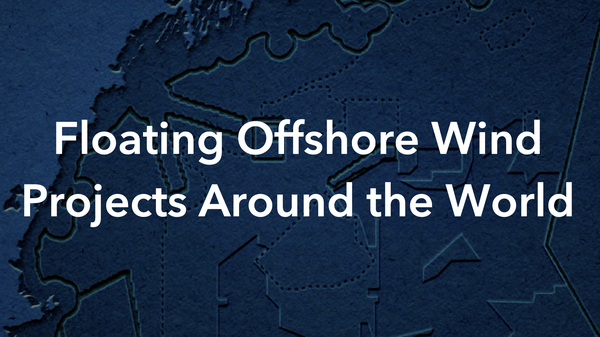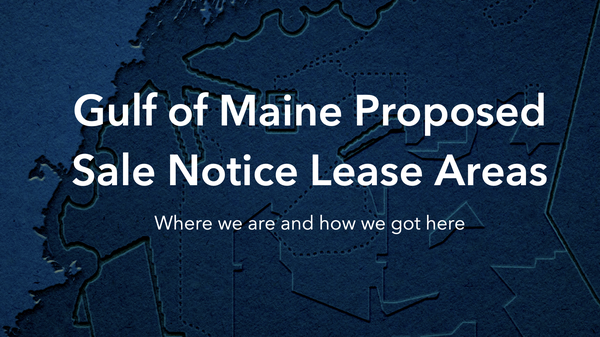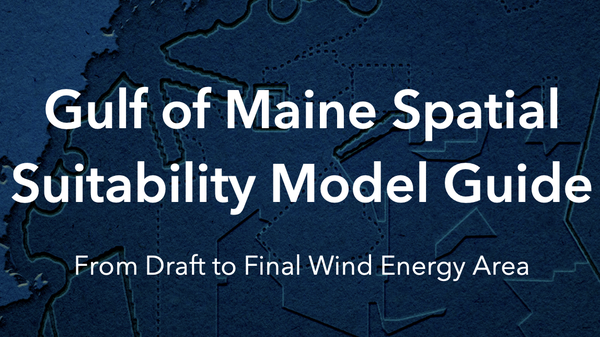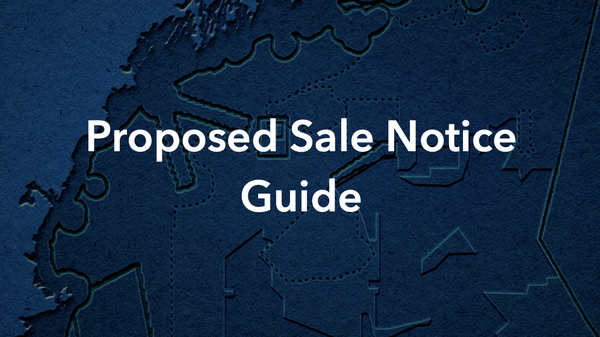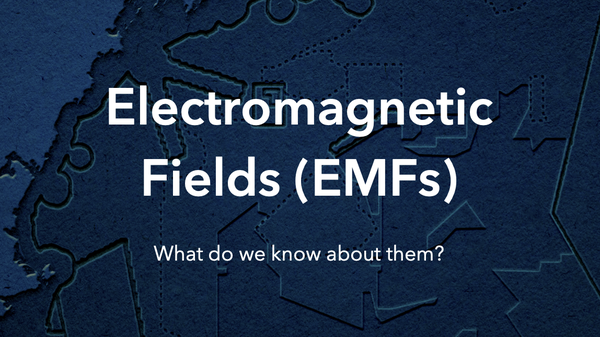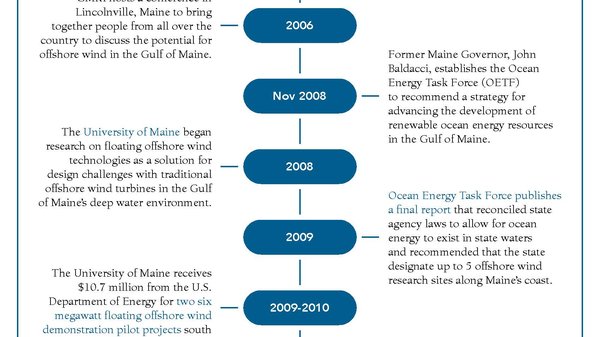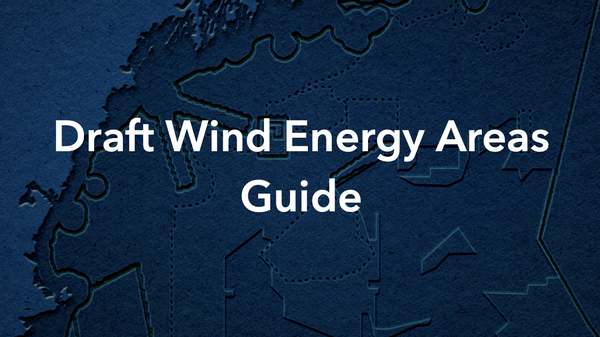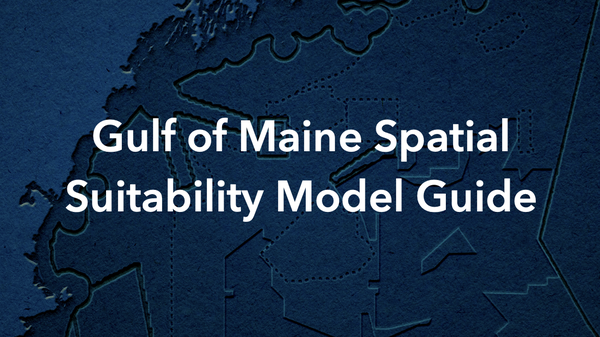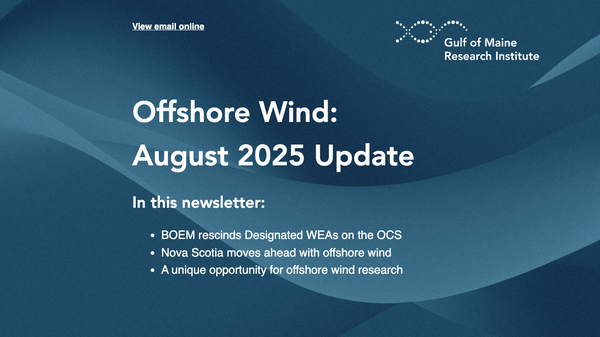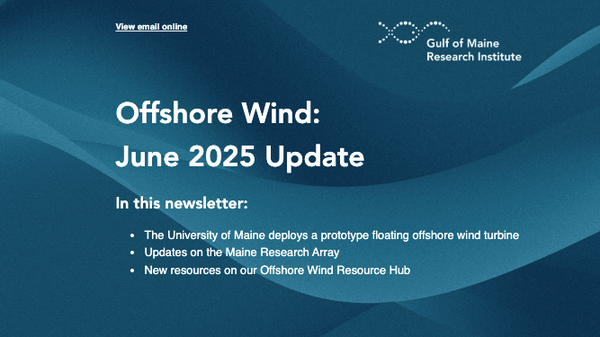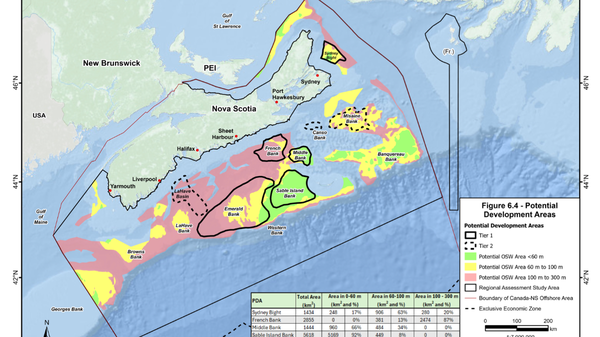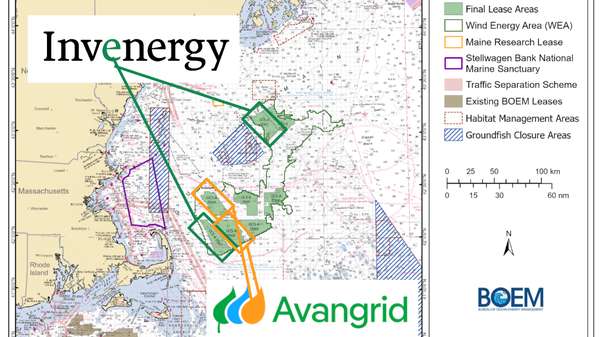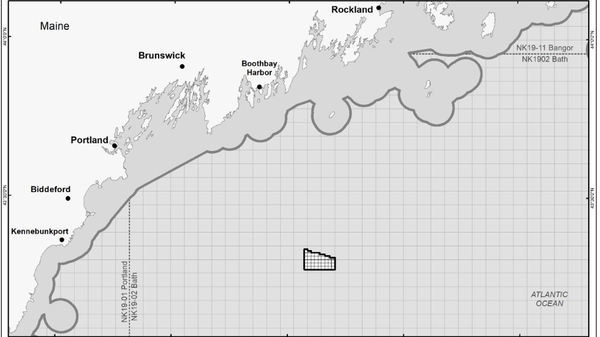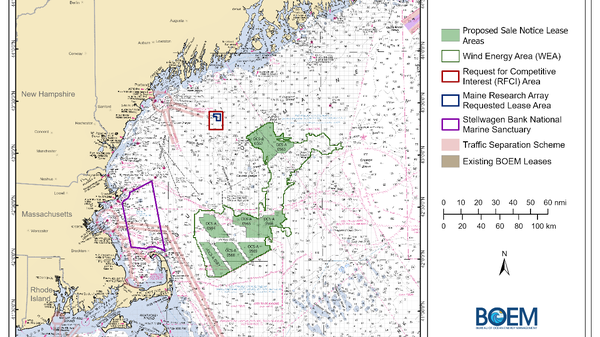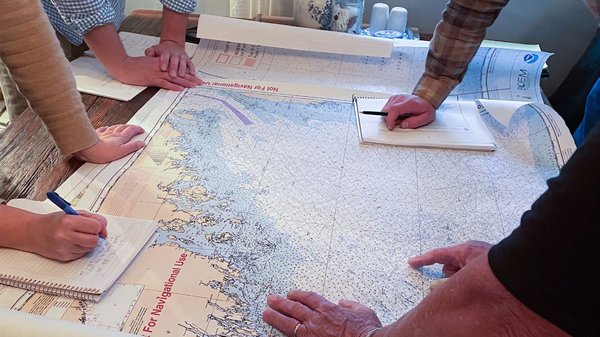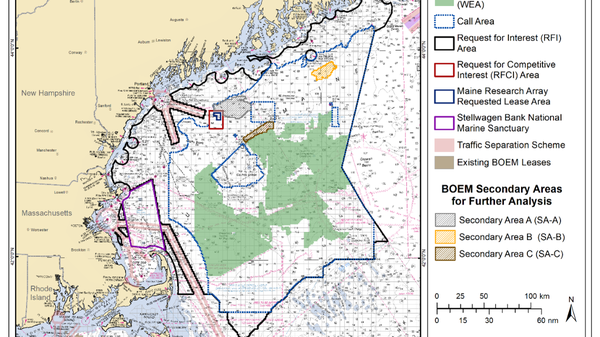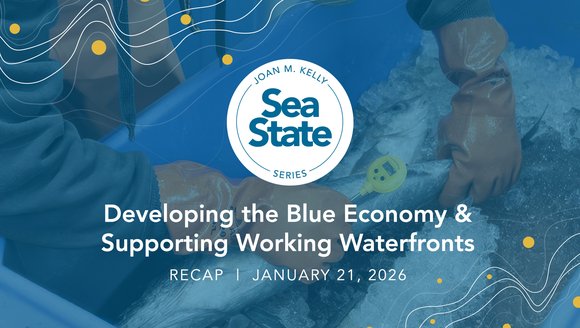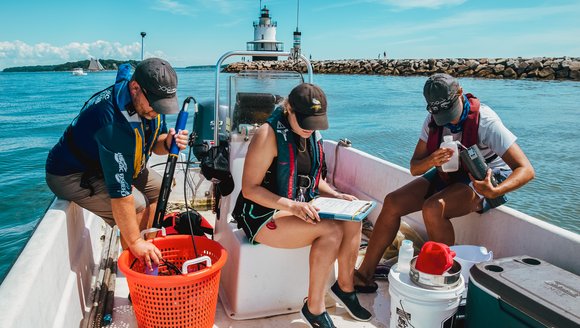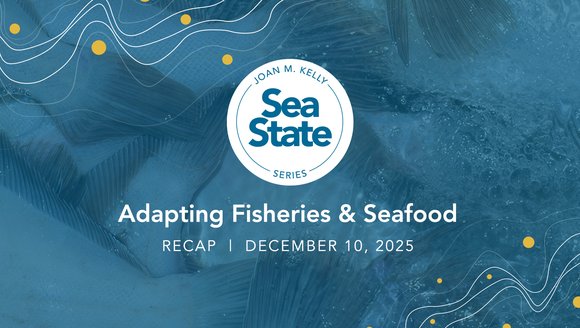Offshore Wind Resource Hub
Your independent source for offshore wind news, information, and updates.
This resource hub offers current information and tools to help marine stakeholders contribute constructively and effectively in discussions about offshore wind development in the Gulf of Maine. Use this hub to find objective information, explanations of the development and leasing processes, research summaries, and opportunities to engage.
Our Goals
- Provide a platform where you can easily access and understand the complex information surrounding floating offshore wind.
- Synthesize recent reports, share environmental studies, and support stakeholders with the insights needed to engage in the development process.
- Address the specific concerns, questions, and opportunities that we have heard from fishermen and stakeholders.
-
Latest Resources
Downloadable and explore PDF guides related to a variety of topics connected to OSW.
- Whales and Offshore Wind
- Offshore Converter Stations
- Exploring Approaches to Fisheries' Coexistence with Floating Offshore Wind
- Floating Offshore Wind Around the World
- Floating Offshore Wind Fundamentals
- Overview of Community Benefit Agreements and Fisheries Mitigation
- Overview of Community Investment Strategies in Clean Energy Projects
- Gulf of Maine Proposed Sale Notice Lease Areas
- Gulf of Maine Spatial Suitability Model
- Proposed Sale Notice Guide
- Electromagnetic Fields (EMFs): What do we know about them?
- History of Offshore Wind in Maine
- Draft Wind Energy Areas Guide
- Suitability Model Guide
Explore Our Latest Newsletter
Check out our newest issue for updates on the federal process, upcoming opportunities to provide public comment, and new resources to help you engage in the offshore wind development process.
-
Previous Newsletters
Miss one of our previous newsletters? Explore our newsletter archive here.
- August 2025
- June 2025
- February 2025
- October 2024
- August 2024
- May 2024
- March 2024
- October 2023
Additional Resources
- Responsible Offshore Science Alliance (ROSA)
Explore science-based resources including databases, guidance documents, and other materials related to offshore wind and fisheries. - National Renewable Energy Laboratory (NREL)
Find information, online geospatial tools, downloadable maps, and data sets relevant to offshore wind. - National Oceanic Atmospheric Administration (NOAA) Fisheries
See information about NOAA’s role in the offshore wind process as well as the results of the socioeconomic impacts of Atlantic offshore wind development. - Tethys Synthesis of Environmental Effects Research on Offshore Wind
Explore topics ranging from the risks to marine life from electromagnetic fields, disturbances to benthic communities, and potential impacts to birds and bats. - Massachusetts Office of Coastal Zone Management (MA CZM) Offshore Wind Publications
Find information on the role of MA CZM in offshore wind planning, siting, and project review with links to ongoing activities and initiatives. - Bureau of Ocean Energy Management (BOEM) Fact Sheets
See fact sheets relevant to offshore wind development; topics include Geological and Geophysical (G&G) surveys and precautions for right whales, among others. - SeaGrant Offshore Wind Energy Resources
Find information on the permitting process, where offshore wind is located nationally, and ongoing environmental studies related to offshore wind. - Northeast Ocean Data Portal
Access expert-reviewed interactive maps and geospatial data relevant to offshore wind projects. - Northeast Ocean Data: Project Status Table
Find up to date information associated with operational and proposed offshore wind energy projects from Maine to North Carolina. - Department of Energy WindExchange Maps & Data
See information on wind energy maps and charts from across the country. - Regional Wildlife Science Collaborative Offshore Wind and Wildlife Research Database
Explore a database for information on offshore wind energy and wildlife including protected fish species, sea turtles, and marine mammals. - New York State Environmental Technical Working Group: Wildlife & Offshore Wind Resources
Explore a library of free, publicly available webinars related to offshore wind energy development and wildlife. - New York State Fisheries Technical Working Group
Access resources related to offshore wind and fisheries and avenues to provide comments on related issues. - Columbia Climate School: Sabin Center for Climate Change Law Community Benefits Agreements Database
Explore a comprehensive database of publicly available Community Benefits Agreements (CBAs) formed around solar, energy storage, and onshore & offshore wind projects. - Berkeley Community Benefits Agreements Resources
Find a range of resources relevant to Community Benefits Agreements, with information on definitions, toolkits, how-to guidance, and case studies focusing on offshore wind CBAs.
Project Team
Read Next
-
Collaborative Solutions: Port Visits Support Engagement in Offshore Wind
Offshore wind development in the Gulf of Maine is a complex and rapidly-changing issue. Explore our early impact on the ongoing process, providing independent, science-based …
Perspectives
-
Sea State Recap: Developing the Blue Economy and Supporting Working Waterfronts
At our latest Sea State Seminar, we turned our attention to the people and places that keep Maine’s coastal economies alive. Framed by the theme …
Perspectives
-
2025 Research Progress Update
Each year, to keep you updated on our research team's progress, we develop an update showcasing some of our lab's achievements. More broadly, this update …
Reports
-
Sea State Recap: Adapting Fisheries & Seafood
In this installment of the Sea State series at the Gulf of Maine Research Institute (GMRI), we hosted a conversation about how collaboration and shared …
Perspectives
